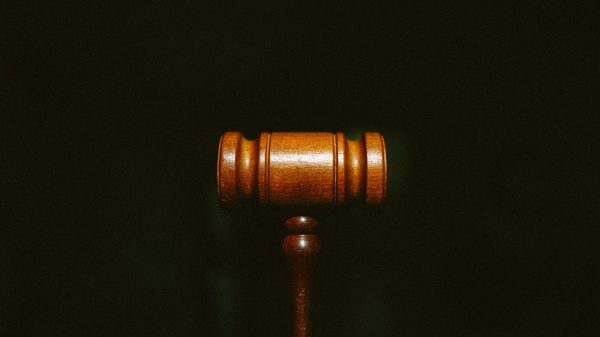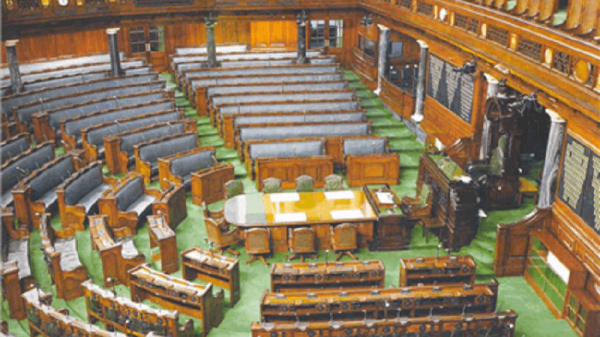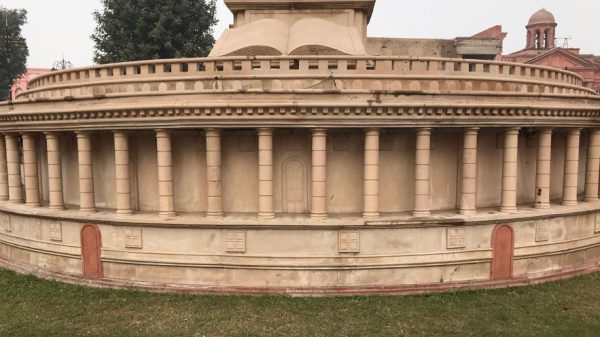The IT Rules apply to social media intermediaries, digital news publishers, and streaming services; its provisions are under litigation across several high courts in India.
Rajya Sabha Member of Parliament from the Communist Party of India Binoy Viswam on Thursday filed a motion to annul the Information Technology (Intermediary Liability and Digital Media Ethics Code) Rules, 2021. Desh Deepak Verma, the Secretary-General of the Lok Sabha, said in a Rajya Sabha bulletin that the motion had been admitted, which means it may come up for discussion. Viswam’s motion stated:
“This House resolves that the Information Technology (Intermediary Guidelines and Digital Media Ethics Code) Rules, 2021, issued under clause (z), (zg) of sub-section (2) of Section 87 of the Information Technology Act, 2000 published in the Gazette of India dated the 25th February, 2021 vide Notification No. G.S.R. 139(E) dated the 25th February 2021 and laid on the Table of the House on 25th March 2021, be annulled; and
This House recommends to Lok Sabha that Lok Sabha do concur in this Motion.” (links supplied)
Why it matters: As the IT Rules face legal challenges and pushback from news organisations and social media companies, scrutiny is building on how it has, under subordinate legislation powers, fundamentally altered the digital regulation landscape. This motion, along with court challenges, will test the robustness of internet rulemaking in India.
MediaNama has reached out to Viswam for comment. A publicly listed phone number for the MP was not reachable as of this report being published. Viswam is a former Minister For Forests and Housing in the Kerala government. An MP from the Rajya Sabha, P Rajeeve, had in 2012 filed a similar motion demanding that the preceding Information Technology (Intermediaries Guidelines) Rules, 2011, be annulled. Arun Jaitley, then the leader of the opposition in the upper house, that year commended Rajeeve for the motion, citing Parliament’s responsibility to oversee subordinate legislation. That motion, however, failed.
- Matter not in Friday business: The statutory motion, which Maadhyam, a Twitter handle that tracks parliamentary proceedings, said was rarely invoked, is not in the Revised List of Business for Friday, indicating it will not be taken up by the Parliament’s Upper House just yet. “Chances are high that it will remain buried in [the Business Advisory Committee], which will not prioritize it for allotment of time,” the handle speculated.
Yes, chances are high that it will remain buried in BAC, which will not prioritize it for allotment of time amidst other issues.
But it's good that MP has moved this motion at the beginning of session and perhaps, it might come up for discussion towards the end.— Maadhyam (@_maadhyam_) July 22, 2021
What the Rules require, and what the concerns are
Requirements: The IT Rules require streaming services and digital news publishers to hire grievance officers and submit to a three-tier complaint mechanism with the government at the top. Its provisions have been challenged by several news organisations and journalists, and the government has moved to transfer these cases from High Courts all around the country to the Supreme Court.
Social media companies, on the other hand, are required to appoint a grievance officer and respond within 36 hours to block content after receiving an order under Section 79 of the IT Act and requires significant social media intermediaries (with more than 5 million users) to also appoint a nodal officer to liaise with law enforcement and the government, and to take down content with impersonation or sexual content within 24 hours.
Concerns: News organisations have previously argued in these cases that the Rules are onerous, that they impinge on the freedom of expression, and are perhaps most importantly, an overreach of subordinate legislation; the Rules were notified without parliamentary approval, something that even the government’s own advisers had initially assessed was required, given the law’s far-reaching power and implications.
Separately, WhatsApp has challenged a “traceability” requirement in the Rules that they say would break the service’s end-to-end encryption. Through the traceability requirement, the government said it sought to trace the originator of harmful messages, like in the case of fake news. The Kerala High Court on July 9 granted the websites of TV broadcasters relief against any coercive action from the government.
Also read:
- Guide: All You Need To Know About The New IT Rules, 2021
- Supreme Court To Hear Transfer Petition Of All IT Rules Cases Filed By News Portals On July 16
- Kerala HC Grants Interim Stay To News Channels Against Coercive Action On IT Rules: Report
























